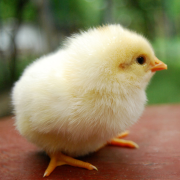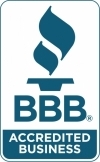Spring is just around the corner, which means it is time to add baby chicks to grow your flock. This seems like a simple task, but there are some factors to consider to ensure you are buying chicks responsibly. It is important to understand what kind of chicks fit your farming needs and local ordinances surrounding ownership. This will help to avoid the need for rehoming any of your flock down the line.
Local Ordinances
Rules and regulations about pet ownership – and poultry in particular – vary by municipality, so it’s important to understand your local ordinances. At the bottom of this article is a quick guide for starters, and you can find additional information on our website. Also, be sure to check any neighborhood or HOA regulations before you create or add to your flock.
Straight-Run or Sexed Chicks
When buying baby chicks, you will have the option of buying “straight-run” or “sexed” chicks. Understanding this difference and recognizing your farming needs ahead of time will help you optimize the maintenance of a healthy flock.
Straight-run chickens come from a hatch that has not been sexed, meaning they may be male or female. If you are in the market for both roosters and hens (male and female), then buying straight-run chicks would make sense for you. Having a variety of chicks is a great way to grow your flock and roosters can help protect the flock from predators. In addition, straight-run chicks are usually less expensive since the practice of sexing chickens is time-consuming and costly for chicken hatcheries. Buying straight-run chicks is a cost-effective option for those who do not need to know the sex of their chicken.
If you know that you can’t accommodate a rooster or don’t want a certain sexed chicken, then buying a sexed chick is your best option.
When purchasing a sexed chicken, you will know if you’re buying a pullet (young female chick) or a cockerel (young male chick). If you know that you cannot house a rooster on your property, or that you don’t have use for a rooster, then you will want to know their sex ahead of time and purchase a sexed chick. This ensures you are growing a flock that directly meets your farming needs. Adoptable chickens at Larimer Humane Society are already sexed, helping you make the best decision possible for your flock/farm.
When purchasing chicks this spring, be sure to purchase responsibly. Knowing your local ordinances, your farming needs, and what kind of flock you’ll want, will set you and your flock up for success. Rehoming chicks and chickens can add stress to their daily routine, and this can be avoided by knowing WHO you are adding to your flock. In 2022, 59 roosters were surrendered to Larimer Humane Society for being the wrong sex for the owner’s needs. If you are in the market for some chicks but not sure where to start, we can help! Call 970.226.3647 ext. 0 and a team member will be available to assist you.
Local Ordinances
Fort Collins
- Keeping of chickens or duck hens in areas not zoned for farm animals requires a permit through Larimer Humane Society.
- Applicants must meet specific conditions and pass an onsite inspection by Animal Protection & Control.
- Quantities of animals are determined by property size.
- Permits allow chicken and duck hens.
- Roosters and drake ducks are prohibited.
Loveland
- All domesticated fowl are allowed, provided the animals and their enclosures are well-maintained without constituting a nuisance to neighboring properties.
- The noise ordinance applies to domesticated fowl as well.
Unincorporated Larimer County
- Consult with Larimer County land-use and zoning regulations for the keeping of domesticated poultry for your area or district.
Johnstown
- All backyard poultry are permitted, provided their enclosure affords a minimum of 100 square feet per animal.
- No more than four pet or fowl animals may be kept at one property unless the property is one acre or larger and meets specific requirements.
Timnath
- Keeping of chickens or duck hens in districts not zoned for farm animals requires a permit through Larimer Humane Society.
- Applicants must meet specific enclosure, care and location conditions to keep chickens within the city limits.
- Permits allow up to six chicken hens.
- Roosters are prohibited.
Wellington
- Chickens are allowed, provided their enclosure and coops meet minimum space requirements.
- No more than 12 chickens may be kept at one property.
- Roosters, ganders, peacocks, and guinea fowl are prohibited.
Windsor
- Keeping chickens requires a permit through the Town of Windsor.
- Permits allow up to six chicken hens.
- Roosters are prohibited.





